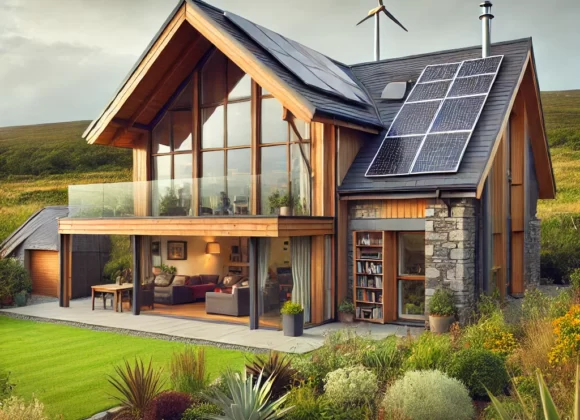Should I Fix My Energy Tariff in 2022?
The recent energy price cap increase has left many homeowners questioning whether they should fix their energy tariffs. With a further increase coming into effect from April 2022, now may be the ideal time to fix your energy rates. However, there are risks involved and you may end up with a worse deal if you switch.
Are you debating whether you should fix your energy tariff in 2022? This article will discuss everything you need to know about fixed energy tariffs, including the benefits and how they compare to variable rates.
What is a fixed energy tariff?
A fixed energy tariff means that your unit price for gas and electricity will remain the same for the duration of the plan, which is usually 12 to 24 months.
Keep in mind that a fixed-rate means your price per unit will be fixed, not your energy bill. The amount you pay will go up and down depending on how much energy you use.
At Nexus, we know you can reduce your utility bills by carrying out energy-saving home improvements such as installing loft installation, draft-proofing windows, and adding secondary glazing.
What are the benefits?
The main benefit of choosing a fixed tariff is that your rates will not increase if wholesale energy prices increase. You will pay a set amount for the duration of your plan. This makes it much easier to manage your utility bills and budget accordingly.
According to moneysupermarket.com: “Fixed-rate tariffs are often cheaper than variable-rate deals, and they let you take advantage of favourable market conditions.”
Are there any drawbacks?
One drawback of fixed energy tariffs is that they are less flexible than variable plans. You will be locked into a contract and may have to pay a large exit fee if you decide to switch before the end of your plan.
You also won’t get to take advantage of lower rates if wholesale energy prices drop – your rate will remain the same.
What is a variable energy tariff?
A variable energy tariff is the opposite of a fixed tariff. The amount you are charged per unit of gas and electricity will vary depending on wholesale prices. If global energy prices drop, then you will usually be charged a lower rate for your energy and vice versa.
Variable tariffs are subject to Ofgem’s energy price cap and suppliers much give their customers 30 days’ notice before new rates come into effect.
Which energy tariff is best?
Many people prefer fixed energy tariffs because of the consistency and peace of mind they offer. You will benefit from set rates that will protect you from energy price hikes and make it easier to take control of your utility bills.
However, fixed tariffs can be more expensive and often come with large exit fees and other contractual conditions. Variable tariffs offer more flexibility but you need to watch energy prices closely and find new deals if your supplier announces an energy price increase.
How will the price cap affect my payments in 2022?
Ofgem recently announced that the energy price cap will increase by £693 in April 2022. This will increase average household bills to almost £2,000 a year. Many households in the UK will be affected by the price cap increase and now could be the ideal time to fix your rates.
Martin Lewis advises that it’s likely that the price cap will increase again in October, and you can expect to see a 24% rise on top of the coming 1 April rise. This would push average household bills up to £2,450 a year.
Fixing your energy rates now could be an effective way to prevent a further increase in your energy rates in April and later in the year.
Is now a good time to fix my rates?
Now could be the ideal time to fix your energy rates if you can find a good deal with a new energy supplier.
Experts advise that you should only switch if you can find a fixed deal that is less than 75% more than the current price cap, or no more than 15% more than the April price cap. Keep this in mind when you are researching energy suppliers and comparing different deals.
Conclusion
Fixed tariffs have various benefits over variable plans, but they also have some drawbacks to consider. Weigh up the pros and cons of each option to help you decide whether it’s a good idea to fix your energy tariff in 2022.



